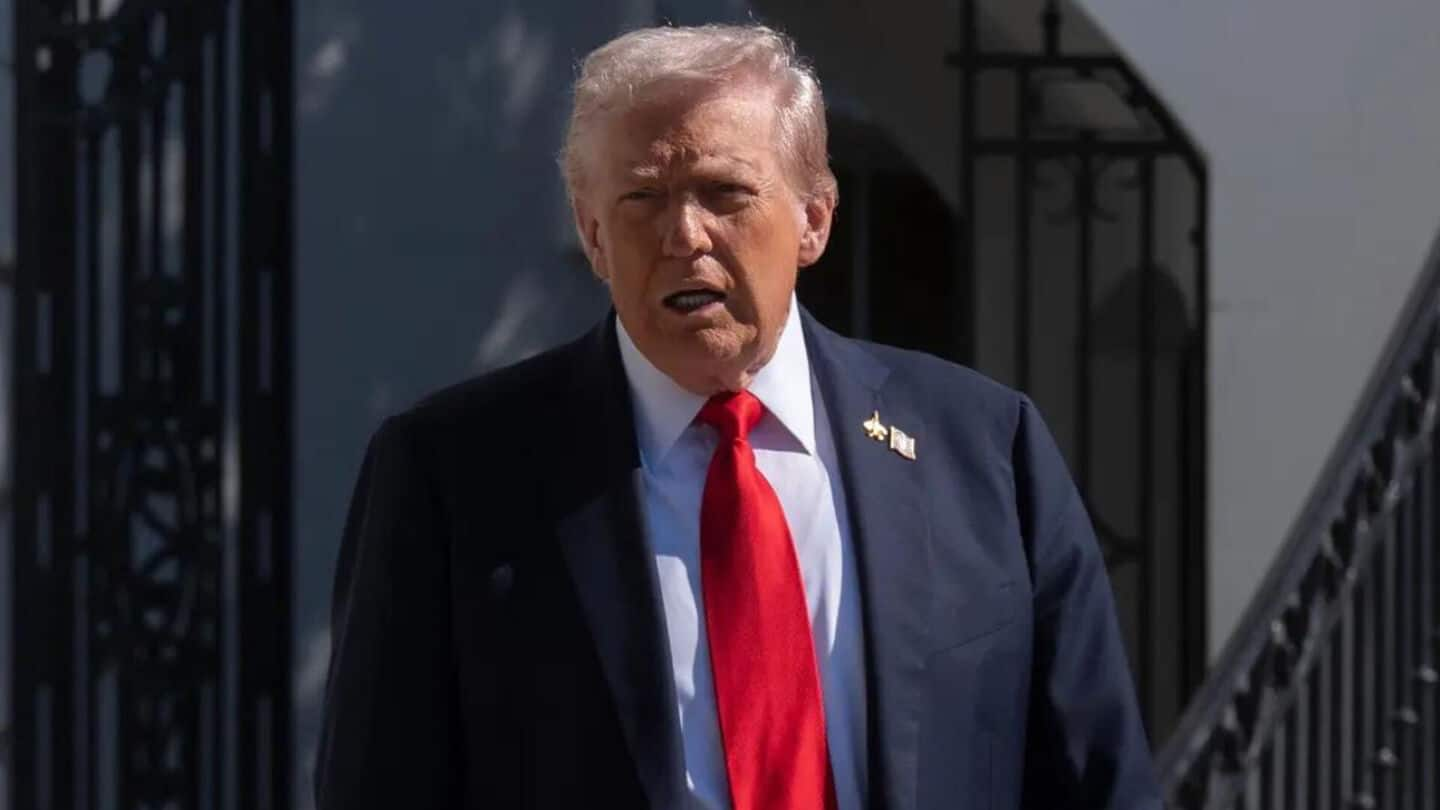
Move Gaza talks fast or 'massive bloodshed will follow': Trump
What's the story
United States President Donald Trump has urged negotiators to "move fast" ahead of Monday's peace talks for Gaza, warning that "massive bloodshed will follow" if they don't progress quickly. Egypt is set to host the talks between Israel and Hamas, with an Israeli delegation headed by strategic affairs minister Ron Dermer attending. US envoy Steve Witkoff is also expected to participate in these discussions.
Key issues
Netanyahu anticipates hostages release announcement soon
Israeli Prime Minister Benjamin Netanyahu has said he hopes to announce the release of hostages held in Gaza "in the coming days." Hamas has also announced its intention to return all remaining hostages, both dead and alive. The first phase of Trump's peace plan involves releasing hostages in exchange for Palestinian prisoners. However, disarmament and demobilization of Hamas remain contentious points in future negotiations.
Global backing
Global support for immediate ceasefire grows
The international community is increasingly backing calls for an immediate ceasefire. Pope Leo has called for a permanent ceasefire, while foreign ministers of eight Muslim-majority countries have urged negotiations to end hostilities. Israeli government spokeswoman Shosh Bedrosian confirmed that some bombings have stopped but no formal ceasefire is in place yet. Strikes were reported over the weekend, killing at least eight people on Sunday alone.
Continued conflict
Israeli military has currently covered approximately 80% of the enclave
The first phase focuses on the release of hostages in exchange for the release of Palestinian detainees. A Palestinian official close to the talks told Reuters that progress in the Cairo talks will heavily depend on whether Hamas agrees to Washington's withdrawal map. The Israeli military has currently covered approximately 80% of the enclave, which it refers to as a "dangerous combat zone."
Plan
Withdrawal phases
If the peace proposal adheres to the boundaries shown on Trump's map, Israel's initial pullout would leave Gaza roughly 55% occupied, with the second withdrawal leaving it around 40% occupied. The Israeli military would occupy approximately 15% of Gaza following the final withdrawal phase, which would form a "security buffer zone." This aspect, as well as the peace plan proposal for an international group to manage Gaza, will be a "little more tougher to work through," Marco Rubio said.